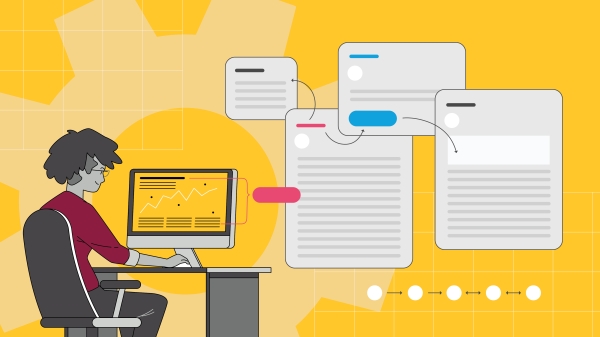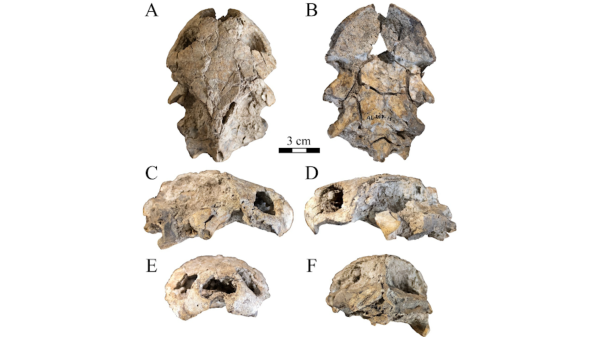ASU’s sustainability practices earn No. 1 ranking from esteemed higher-education rating system

ASU is one of only 12 institutions worldwide to earn a platinum rating from STARS. Photo courtesy ASU
Editor’s note: This story is featured in the 2023 year in review.
Sustainability at Arizona State University takes many forms. Solar panels soak in rays of sun to power operations; buildings are crafted with built-in strategies to decrease carbon emissions; and university groups harvest campus-grown produce.
Because of its longstanding commitment to ensuring a thriving future for all, ASU has earned a rating of No. 1 in the United States and No. 2 in the world for its sustainability practices by the Sustainability Tracking, Assessment & Rating System, or STARS, a program from the Association for the Advancement of Sustainability in Higher Education. ASU not only scored above other highly esteemed institutions, but also beat its previous score — increasing from 2020 by four points, totaling 91.10 points out of 100.
“Arizona State University has made an all-in commitment to demonstrating leadership and substantive outcomes across sustainability education, research, operation and practice,” said ASU President Michael Crow. “Our ambitious trajectory, and the pace and scale at which we are meeting or exceeding our goals, speaks directly to the ingenuity and long-term dedication of our university community in its quest for essential sustainability solutions.”
STARS measures scores from higher-education institutions in categories including academics, engagement, operations, planning and administration, and innovation and leadership. This ranking marks the second consecutive platinum ranking for ASU, making it one of only 12 worldwide institutions to maintain a platinum label in 2023. ASU will hold its position until 2026, at which point scores are reassessed.
“The platinum rating in AASHE STARS exemplifies ASU’s continued dedication to the practice of creating thriving futures for all,” said Peter Schlosser, vice president and vice provost of the Julie Ann Wrigley Global Futures Laboratory and acting dean of the College of Global Futures. “This rating is a broad benchmark of our successes in facilities and engagement, and also our impact through discovery, learning and solutions-oriented activities. ASU is leading on many aspects of the design and implementation of sustainable physical infrastructure, and it is training future generations to take those efforts to the next level and affect change beyond the university setting.”
According to the report, ASU achieved a perfect score in its research rating and a near-perfect score for curriculum. Academics and engagement were among ASU’s strongest categories in the ranking. University officials have increased sustainability efforts through both educational efforts and continued action efforts.
“The growth of sustainability at ASU in the past two decades, as both a discipline and a practice, is striking and now decorated with two firsts: founding the School of Sustainability in 2006 and being recognized as the top institution in the U.S. for sustainability performance,” said Marc Campbell, executive director of sustainability at ASU. “The university has continually set a high leadership standard that we’re seeing inspire other institutions.”
ASU has installed 90 on-site solar arrays since 2004 and recently began receiving renewable energy from the Salt River Project’s Central Line Solar plant. The Rob and Melani Walton Center for Planetary Health, which houses the Julie Ann Wrigley Global Futures Laboratory, is on track to receive a LEED Platinum certification, a globally recognized symbol of sustainability achievement.
In addition to campus infrastructure and student outcomes, ASU has also established itself as a statewide leader in sustainability spaces. The Arizona Water Innovation Initiative, which began in late 2022, focuses on implementable and research-based solutions in response to the state’s water crisis. This statewide, collaborative initiative is being led by water, policy and engineering experts at ASU.
Nichol Luoma, vice president of University Business Services and university sustainability operations officer, said the university has taken a deliberate and holistic approach to making sustainability something ASU community members and beyond can take part in.
“Sustainability is a macro issue, and ASU is meaningfully setting an important example for other large organizations and universities demonstrating that you can make this a priority at a large scale,” Luoma said. “It can be done, and it can be done successfully. ”
Luoma said sustainability education and solutions are interwoven throughout all of ASU, including the student experience. One program that exemplifies student efforts and contributed to the STARS rating is the Eco Reps program, supported through a partnership with Coca-Cola. This program trains 15 students per semester to act as stewards of sustainability for their on-campus residential communities. These students are given training materials and utilize the knowledge they gain by hosting weekly student activities and events. Students of all academic backgrounds are encouraged to apply.
“We can always advance our efforts to make a more positive environmental impact as a university, but we can also have a broader influence on our community and society,” Luoma said. “It’s our goal to leverage ASU’s place as a sustainability leader to include as many partners as we can. While leading by example, we’re encouraging countless people to bring sustainability practices home with them and inspire change in their own communities.”
More Science and technology

New research by ASU paleoanthropologists: 2 ancient human ancestors were neighbors
In 2009, scientists found eight bones from the foot of an ancient human ancestor within layers of million-year-old sediment in…

When facts aren’t enough
In the age of viral headlines and endless scrolling, misinformation travels faster than the truth. Even careful readers can be…

Scientists discover new turtle that lived alongside 'Lucy' species
Shell pieces and a rare skull of a 3-million-year-old freshwater turtle are providing scientists at Arizona State University with…